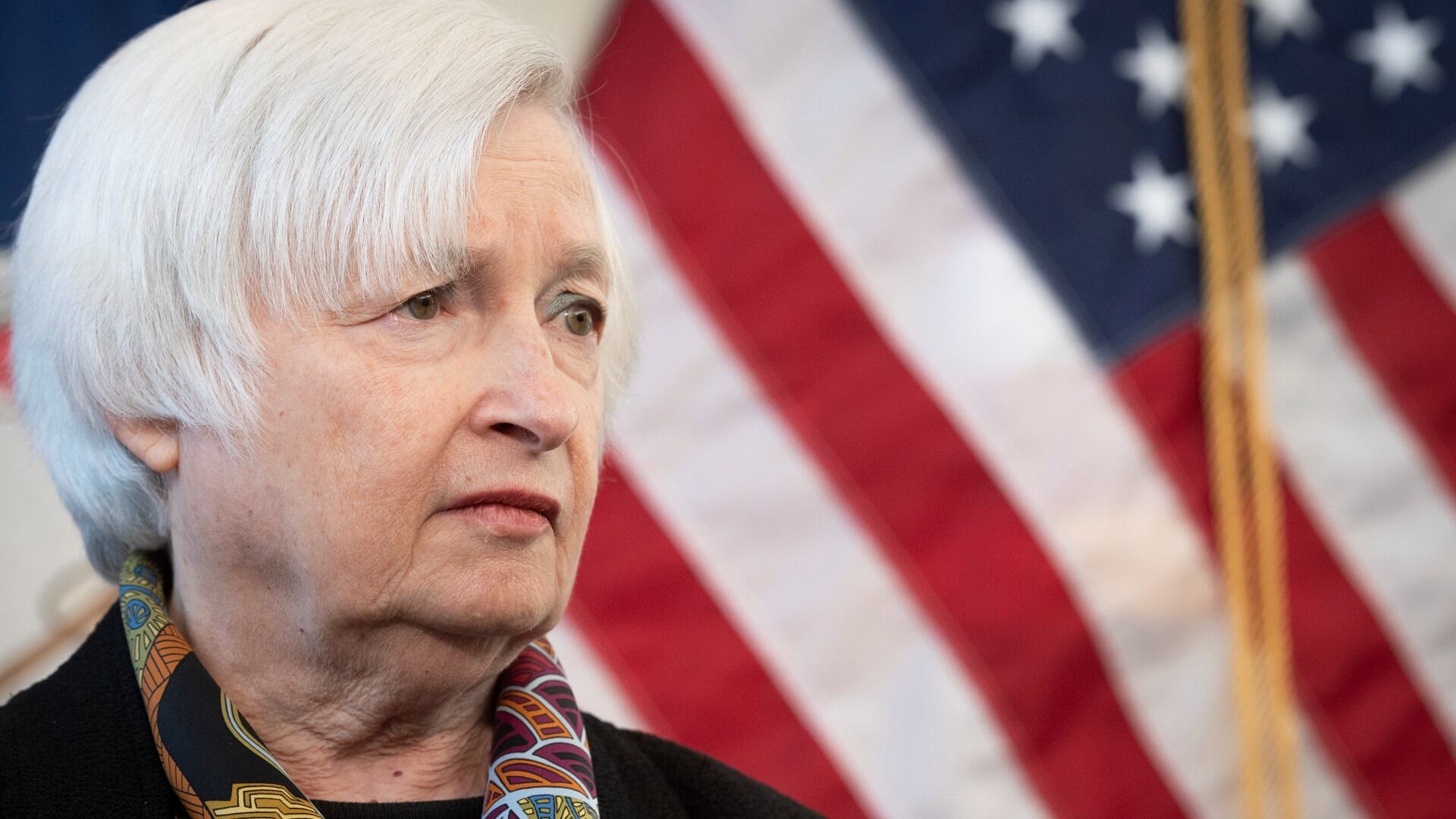Treasury Secretary Janet Yellen is trying project calm after regional bank failures, saying the U.S. banking system is “sound” but additional rescue arrangements “could be warranted” if any new failures at smaller institutions pose a risk to financial stability.
Yellen, in an excerpt of remarks prepared for delivery to the American Bankers Association on Tuesday, says that overall “the situation is stabilizing."
"And the U.S. banking system remains sound,” Yellen says.
Yellen's remarks come after a series of troubling bank developments this month.
Silicon Valley Bank, based in Santa Clara, California, failed on March 10 after depositors rushed to withdraw money amid anxiety over the bank’s health. It was the second-largest bank collapse in U.S. history. Regulators convened over the following weekend and announced that New York-based Signature Bank also had failed. They said that all depositors at both banks, including those holding uninsured funds, those exceeding $250,000, would be protected by federal deposit insurance.
And last week a third bank, San Francisco-based First Republic Bank, was fortified by $30 billion in funds raised by 11 of the biggest U.S. banks in an attempt to prevent it from collapsing.
The government is now determined to restore public confidence in the banking system and to prevent any more turmoil. The Justice Department and the Securities and Exchange Commission have launched investigations into the Silicon Valley Bank collapse, and President Joe Biden has called on Congress to strengthen rules on regional banks and to impose tougher penalties on executives of failed banks.
Yellen, in her prepared remarks, says the government’s intervention was necessary to “protect the broader banking system" and more rescue efforts could be necessary.
“Similar actions could be warranted if smaller institutions suffer deposit runs that pose the risk of contagion,” she says.
Yellen faced the Senate Finance Committee last week and offered upbeat reassurances to rattled bank depositors and investors that the U.S. banking system “remains sound” and Americans “can feel confident” about the safety of their deposits.
She will appear in front of congressional panels twice more this week, in the Senate and the House, and will inevitably face more questions about the nature of the bank failures and the government's effort to quell them.
“Let me be clear: The government’s recent actions have demonstrated our resolute commitment to take the necessary steps to ensure that depositors’ savings and the banking system remain safe,” she said.













